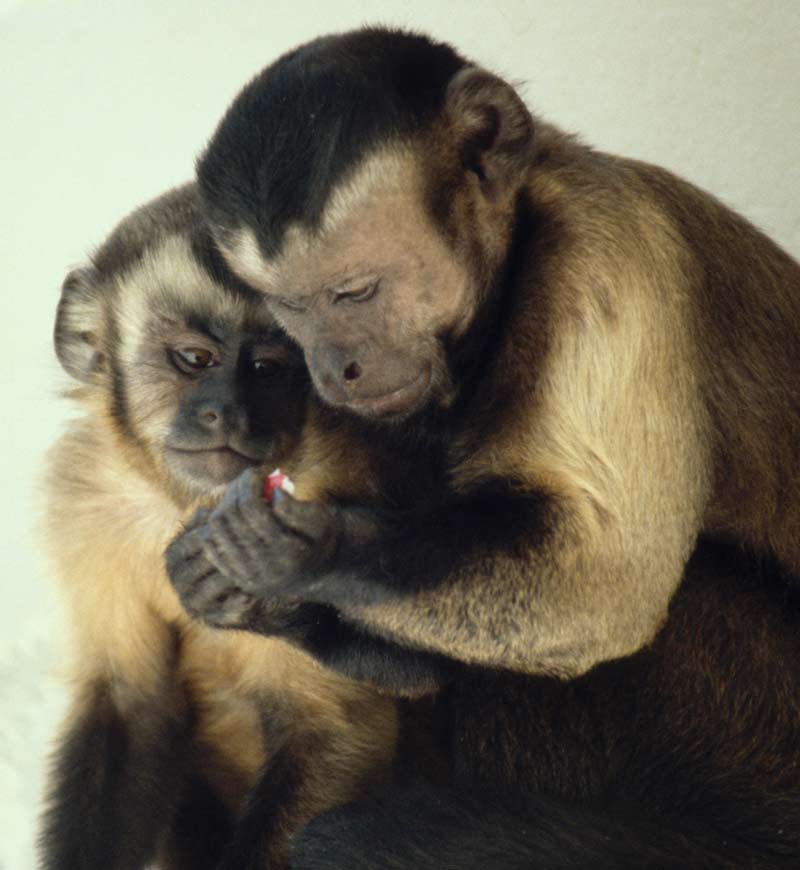Why Monkeys (Like Humans) Only Sometimes Share

Get the world’s most fascinating discoveries delivered straight to your inbox.
You are now subscribed
Your newsletter sign-up was successful
Want to add more newsletters?

Delivered Daily
Daily Newsletter
Sign up for the latest discoveries, groundbreaking research and fascinating breakthroughs that impact you and the wider world direct to your inbox.

Once a week
Life's Little Mysteries
Feed your curiosity with an exclusive mystery every week, solved with science and delivered direct to your inbox before it's seen anywhere else.

Once a week
How It Works
Sign up to our free science & technology newsletter for your weekly fix of fascinating articles, quick quizzes, amazing images, and more

Delivered daily
Space.com Newsletter
Breaking space news, the latest updates on rocket launches, skywatching events and more!

Once a month
Watch This Space
Sign up to our monthly entertainment newsletter to keep up with all our coverage of the latest sci-fi and space movies, tv shows, games and books.

Once a week
Night Sky This Week
Discover this week's must-see night sky events, moon phases, and stunning astrophotos. Sign up for our skywatching newsletter and explore the universe with us!
Join the club
Get full access to premium articles, exclusive features and a growing list of member rewards.
Monkeys can understand the needs of others, a finding that could shed light on the origins of how we truly "get" others, researchers say.
The advanced capability humans possess to understand what others might know, called "theory of mind," is one trait often said to set our species apart from others. Still, aspects of the theory of mind have been seen in close relatives such as chimpanzees.
Monkeys, which are somewhat distant relatives of humans, are rarely tested for behavior as complex as theory of mind. However, researchers now find that monkeys appear capable of simpler, related behavior — sensitivity to what others might want and need.
The notion is simple. Imagine a child begs you for an ice cream bar. You would have a very different reaction if you had just watched that child eat an ice cream bar right before asking for another one. Human children develop sensitivity to what others might want and need before theory of mind allows them to decipher what others might know.
Scientists tested brown capuchin monkeys (Cebus apella), a large-brained South American primate, and one of the very few primate groups in which unrelated adults often peacefully share food in the wild and in captivity. In the study, some of the capuchin monkeys had a view of other monkeys eating apple pieces, while other participants had their views of the apple-eating blocked.
"It is the first study of its kind, looking at the understanding of needs, desires, intentions of others, rather than knowledge," said researcher Frans de Waal, a primatologist at Emory University.
The investigators found the simians were about half as willing to share food with another if they knew the other had just eaten.
Get the world’s most fascinating discoveries delivered straight to your inbox.
"The monkeys share food not [by] just responding to the partner's behavior in front of them, but taking past events into account as well," said researcher Yuko Hattori, a primatologist at Kyoto University's Primate Research Institute in Japan.
Sensitivity to the needs and wants of others "would be beneficial when resources are limited," Hattori told LiveScience. "For example, you could find a sated partner who still requests food, so you can reduce the food to a fair amount and use limited resources more effectively."
The scientists detailed their findings online April 12 in the journal Behavior.

 Live Science Plus
Live Science Plus










